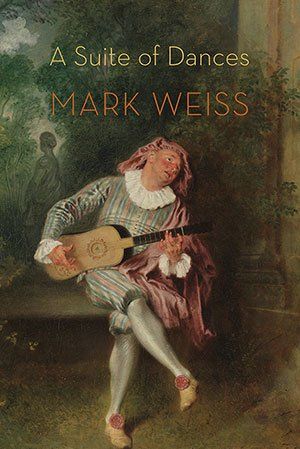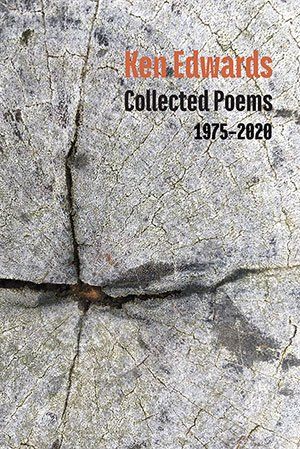2021 Titles — alphabetical by author
Alireza Abiz The Kindly Interrogator
Alireza Abiz is a multi-award-winning Iranian poet, literary scholar, and translator. Born in South Khorasan, Iran in 1968, Abiz studied English Literature in Mashhad and Tehran universities and received his PhD in Creative Writing – Poetry from Newcastle University in the UK. Abiz has written extensively on Persian contemporary literature and culture. His scholarly book Censorship of Literature in Post-Revolutionary Iran: Politics and Culture since 1979 was published in 2020 by Bloomsbury. He has so far published five collections of poetry in Persian, the latest of which (2017) 2017 was awarded the most prestigious independent poetry award in Iran, the Shamlou Award. His sixth collection The Desert Monitor will be published this year.
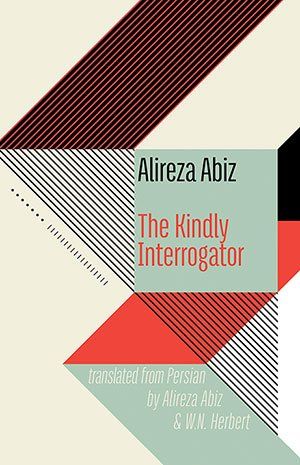
Tim Allen A Democracy of Posions
Tim Allen lived for many years in Plymouth working as a primary school teacher. For two decades he helped, through the magazine Terrible Work and the Language Club reading series, to establish a vibrant poetry community. A Democracy of Poisons, a sequence of prose poems, is Tim Allen’s third Shearsman book and his first completed work following a move to Lancashire where he has been heavily involved with the avant wing of the North-West poetry scene. The texts run parallel with the years of Austerity leading to Brexit and its fall-out, issues internalised here before resurfacing within new narrative contexts and scenarios in which modern cultural history competes with autobiographical conflict to be transported elsewhere by the chimera of language. Motifs arising from the perspective of age and change echo, but sparsely; what really unites the poems is a cruel humour, as often self-directed as aimed at the democracy of poisons.
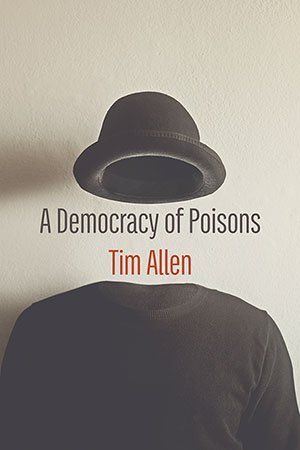
James Bell On the Royal Road — with Hiroshige on the Tokaido
Published August 2021. Paperback, 138pp, 8 x 8ins, £14.95 / $25
Long fascinated by Hiroshige’s woodblock prints, and especially the famous Tokaido Road albums, James Bell (1950-2021) began to work on an extended series of ekphrastic poems inspired by the second of Hiroshige’s albums (1840–42), the famous Kyoka sequence in which each image contains a short comic poem. The sequence contains 56 images – one for each of the 53 stations, or stops, on the route from Edo to Kyoto, plus one for the starting point (Edo’s Nihonbashi Bridge) and two for the terminus in Kyoto, the second of which is the Imperial Palace. This volume reunites James’s wry poems with the images that inspired them, and includes an appendix of five further poems written to images from the first, so-called Great Tokaido album (1833–34), the work that made Hiroshige’s name.
A book for those who love poetry and also those who love art; those who love both will be doubly rewarded.
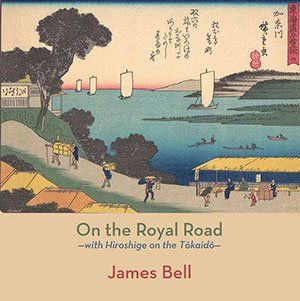
Richard Berengarten Balkan Spaces — essays
This first volume of essays and prose-pieces by Richard Berengarten reflects his sustained involvement in the Balkans over a period of more than thirty-five years. By focusing on his experience of Yugoslavia before, during and after that country’s dissolution, Balkan Spaces locates, tracks and celebrates aspects of history, folk tradition, literary culture, educational practice, politics and poetry, while also including affectionate memoirs of many friends, most of them writers. Through intimate explorations and careful research, Berengarten discovers some of the patternings, varieties and bounties of the Balkan and Yugoslav heritage. While his keen eye questions and explores what William Blake called the “minute particulars”, his overall vision is panoramic and multi-faceted. This book embodies a commitment to the values and varieties of Balkan civilisation, to the poetic imagination, and to the poet’s vocation and craft.
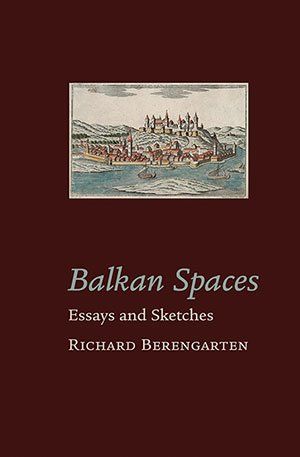
Linda Black Then
"Linda Black’s sparkling poems charm and beguile – and then, quite often, twist a small knife. Under a rubric of ‘little involuntary musings’, she makes a miscellany of different forms: prose poems, grid poems, extended aphorisms with a sting in the tail, fantastical flash-fiction. They toy with nostalgia, trailing threads of real memories into imaginary word-gardens bristling with tricks. Words ‘collude / allude’, slip over each other, with many near-misses. They lean into one another, threaten connection, narrowly miss and ricochet in another direction. Allusions are so nearly (neatly-delightfully) pinned down, are always on the verge of escaping. Daintiness jostles disgust as the poems joke, jibe, curse, cast spells – about food, fripperies, old china, seemingly new-to-you trifles that really aren’t trifling at all. Then tugs and teases – at possible pasts, possible consequences, half-glimpsed narratives – all assembled into glittering bricolage." —Anna Reckin
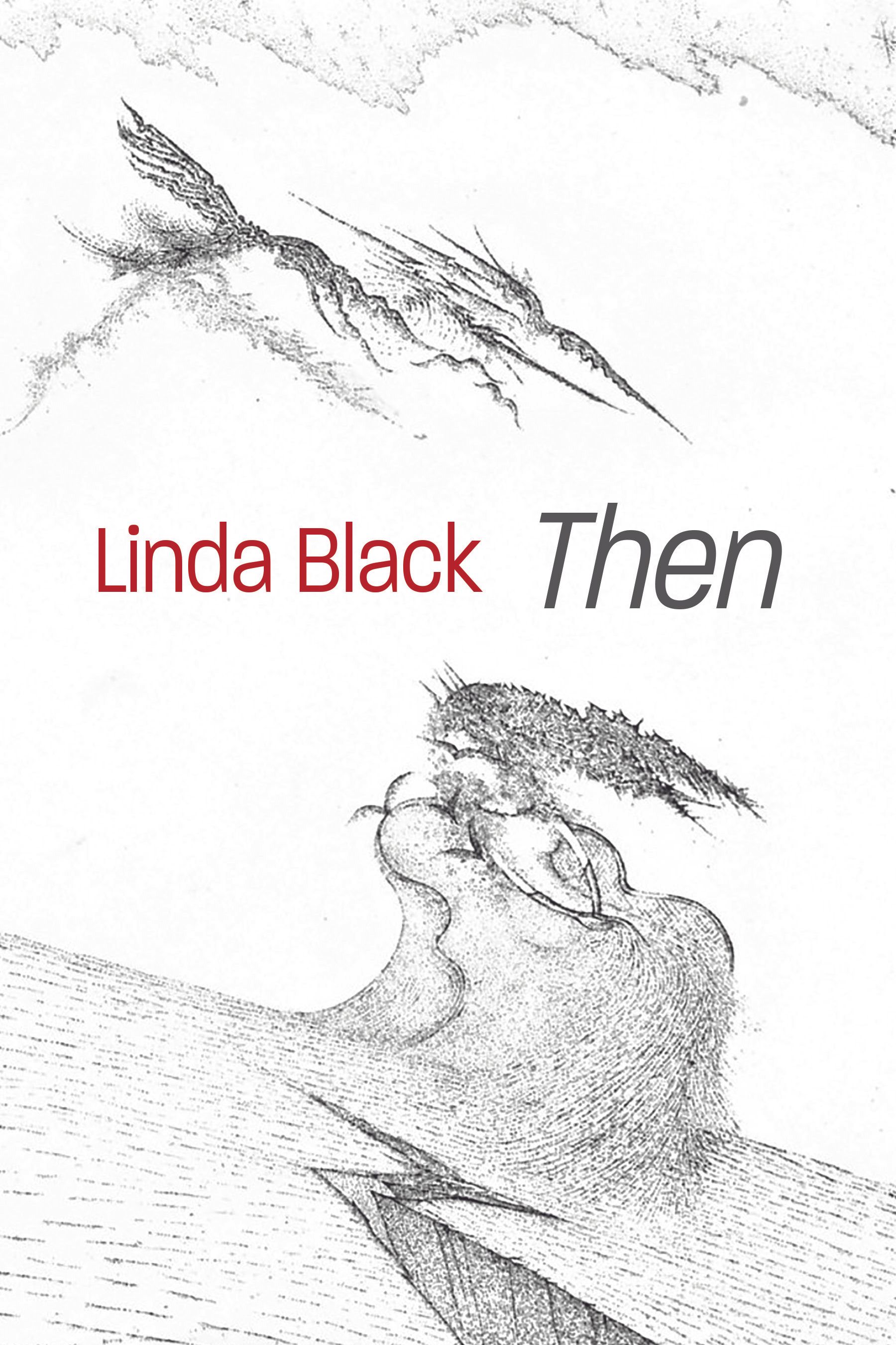
Elisabeth Bletsoe Birds of the Sherborne Missal
Full colour edition; includes 22 medieval illustrations from the Sherborne Missal.
“Elisabeth Bletsoe’s prose-and-verse constructions take on the beauty of densely sparkling mosaics.” —London Review of Books
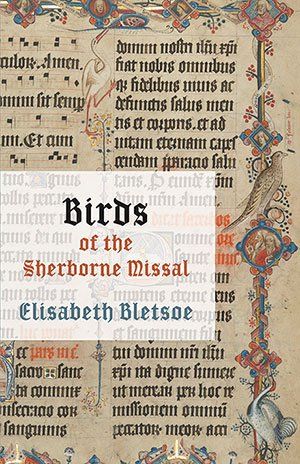
Anthony Caleshu & Rory Waterman (eds.) Poetry & Covid-19
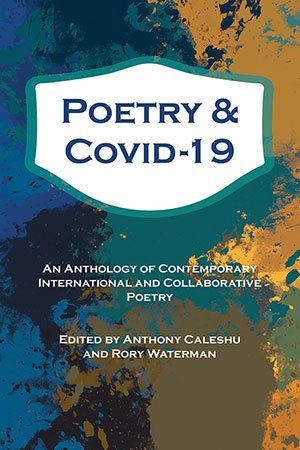
Luís Vaz de Camões Selected Shorter Poems
Camões (ca.1524/25–1580) is reckoned the greatest poet in the Portuguese language, granting him a position in the national literature akin to that of Dante, Shakespeare, or Goethe. He wrote a considerable amount of lyric poetry and at least three dramas, but is best remembered for his epic poem Os Lusíadas (The Lusiads — see below), which set out to be, and succeeded in being, a Portuguese epic of the nation that can stand alongside Virgil’s Aeneid. As Jonathan Griffin ably demonstrates in this volume, however, his shorter works, mostly sonnets and redondilhas (roundels), are fine lyrics and ought to be given the same serious attention that the epic receives as of right. Little is known of Camões’ life, other than what we see “reported” in the Lusiads, but we do know that he served as a common soldier in the East, serving in India, Africa and Macau.
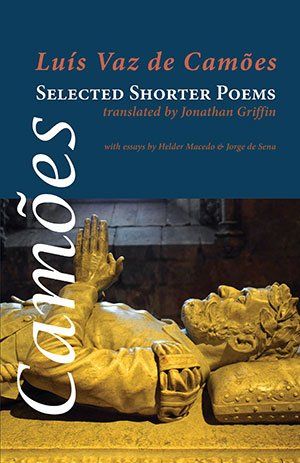
Luís Vaz de Camões The Lusiads
The Lusiads is Camões’ masterpiece and to all intents and purposes his attempt at a Portuguese founding narrative along the lines of the Aeneid, dealing with the rise of Portugal as a maritime power, rather than the rise of Rome. Fittingly, the major presence in these pages is the great navigator, Vasco de Gama. Fanshawe completed his masterly translation while under house arrest at his family estate, during the Cromwellian interregnum, and it is one of the great English literary translations of the 17th century. It holds up particularly well today against more modern versions.
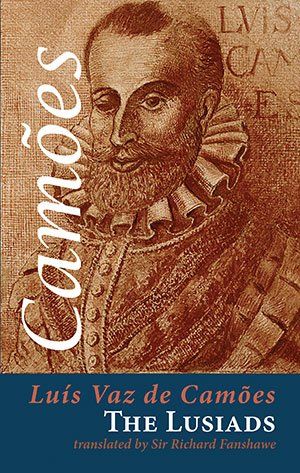
Amit Chaudhuri Ramanujan
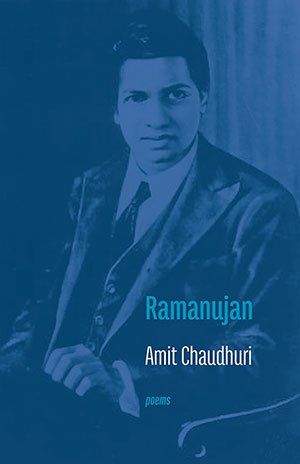
Jeannette L. Clariond The Goddesses of Water / Las diosas del agua
This collection of poems by Jeannette L. Clariond endows the Aztec creation myth with further meaning by reinterpreting the tale of Coyolxauhqui, the goddess of the moon: calendars, stars, pyramids, paintings, murals, ceramics, fabrics, colours—everything in this book takes on new meaning in her poetic language. Coyolxauhqui makes a symbolic journey—via the phases of the Moon—from her arrival in America by the Bering Strait “with jade beneath her tongue” to Mexico today. 500 years ago, in 1521, 200 years after the founding of the great city, a meeting of two worlds took place: Hernán Cortés set foot in Veracruz on the Gulf of Mexico. What did he see? What part of this history is it necessary to reilluminate?
The Goddesses of Water uses the myth of the phases of the Moon to illuminate our awareness of the femicides all across Mexico: The time has come to uncry the wound / for the body to flower once more.
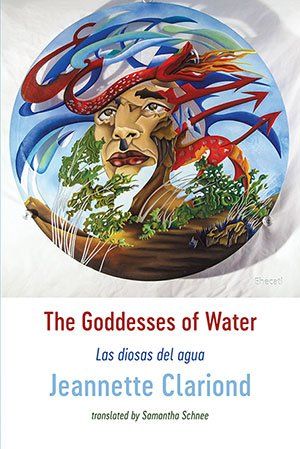
Paul Claudel Break of Noon / Le partage de midi
Translated from French by Jonathan Griffin, David Furlong, John Naughton & Susannah York. English only.
Published July 2021. Paperback, 124pp, 9 x 6ins, £12.95 / $20
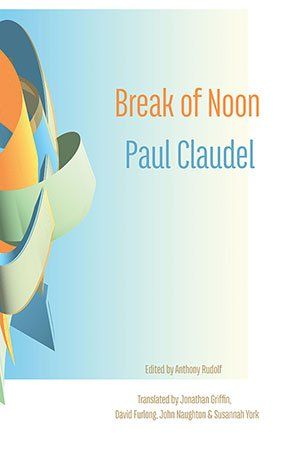
Kelvin Corcoran (ed.) Shearsman 129 / 130

Martin Corless-Smith The Melancholy of Anatomy
In The Melancholy of Anatomy, his ninth collection of poetry, Martin Corless-Smith turns his attention towards ageing and mortality, and in particular to the death of his father. Shifting between formal verse and prose, from the metaphysical to the whimsical, from surreal to anecdotal, the book moves between poetic articulations as a mind might through memories, sifting to find anything to hold on to as everything flows and falls away. At times melancholic, at times nihilistic, at times luminous and dark, this collection asks questions about poetry, memory and what it is to have loved and lived.
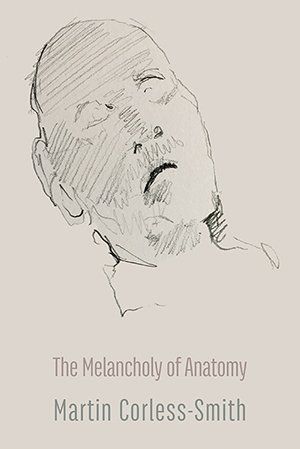
MTC Cronin A Ticket to Trilce
—Peter Boyle
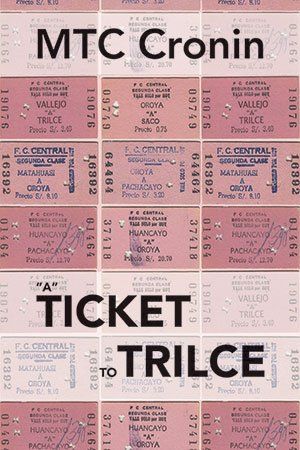
Winétt de Rokha The Valley Loses Its Atmosphere / El valle pierde su atmósfera
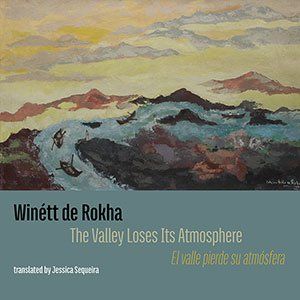
Ken Edwards Collected Poems 1975–2020
"A Collected Poems is a tombstone – there’s no getting away from that. So it was with decidedly mixed feelings that I approached this project. But it has to be said this is a good moment to pause and take stock; it’s been a while now since verse composition was central to my practice, and the work of some forty years can be looked back on with some degree of objectivity, now that I am no longer fabricating lines, but rather sentences (though there are a lot of those here too).
Steve Ely Lectio Violant
"The poems in this book are improvisations arising from contemplative readings of four chapters of the 1611 edition of the King James Bible—Matthew VI, Mark V, Luke XV and Luke X. Lectio Violant—‘profane reading’—is the name I’ve coined to describe this process, alluding to Lectio Divina—‘divine reading’—the long-established Catholic practice of devotional reading, the purpose of which is to draw the reader closer to God by enabling a fuller experience of scripture. I’m not sure this book’s doing the same thing, although you never know." —Steve Ely
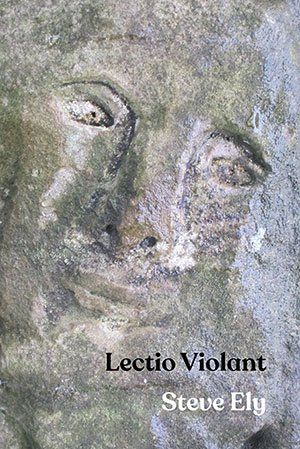
Tony Frazer (ed.) Shearsman 127 / 128

Angela Gardner The Sorry Tale of the Mignonette
The Sorry Tale of the Mignonette takes place in the West Country, at sea and in Australia. It explores power relationships, individual motives, survivor guilt and self-justification, and justice and divine retribution. Poetry heightens the tension and drives the narrative telling the personal and human story of one of the most important legal judgements in English Law—that necessity is not a defence for murder—and is still taught at universities the world over.
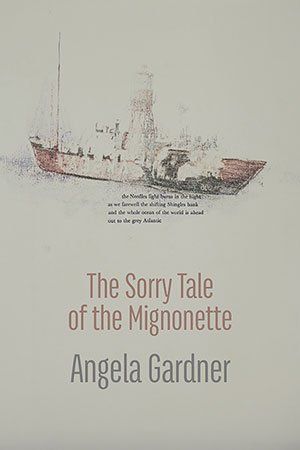
Derek Gromadzki Horology
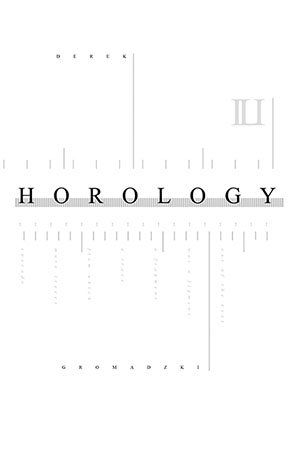
Ralph Hawkins Tell me no more and tell me
First published 40 years ago by Grosseteste, this was Ralph Hawkins' first major collection.
Ralph Hawkins’ poetry is yeasty and written where the meanings are made rather than assigned. Its impulse is towards the immediate, apparently unsynthesised event where thinking occurs moment by moment. The aesthetic bears some resemblance to close mic techniques, we are drawn near to the experience and all distractions are removed for the intricacies of pure resonance. It produces a poetry as tricky as consciousness itself and its rewards are some considerable distance from the prefabricated commonplace expression of lyrical epiphany. Here is a poetry that is expansive, often humorous and always anarchic. In Tell me no more and tell me Ralph Hawkins’ refusal to whistle along with the sanctioned doggerel of English poetry and its returns is startlingly evident, as it has been throughout four decades of creativity.
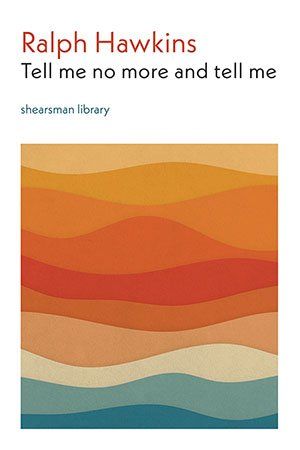
Michael Heller Within the Inscribed — selected prose and conversations
From his pioneering studies of the Objectivist poets and of uncertainty and representation in modernist and contemporary thought, Michael Heller has been seeking to expand the terms of how we read and discuss poetry. In these recent writings, at once revelatory and precise, Heller deepens the exploration, articulating a sense of poetic language’s inscription and trace, often with respect to aspects of Judaic thought and Buddhist influences, the “poetics” of Walter Benjamin, Heidegger, the Objectivists, Oppen and Reznikoff, H.D., Robert Duncan, and other twentieth century writers and thinkers. As Xavier Kalck writes in his Foreword to this collection, Heller’s concern is with “the sacred as a function of language and as an objective in his poetics.”
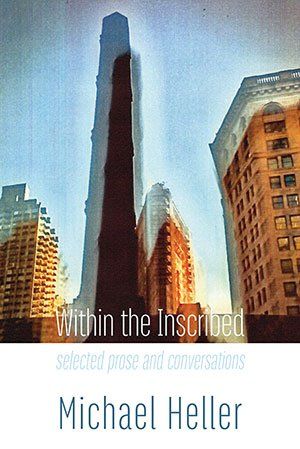
Vicente Huidobro Adam
This volume is only the second English translation of Huidobro’s earliest mature poetry, the first work to indicate that there was more to him than the pale imitation of Rubén Darío that was evidenced in his first two books. Written between 1914 and 1916, and published in Santiago in 1916, it was Huidobro’s first extended attempt at free verse. It is probably fair to say that the book would today be mostly ignored, were it not for the author’s spectacular later career, but it retains considerable interest as a transitional volume, alongside the subsequent collection, El espejo de agua (The Water Mirror), also published in 1916, before he rushed headlong into the vanguardia and international modernism.
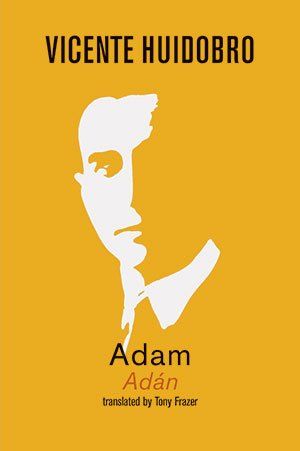
Vicente Huidobro Citizen of Oblivion / El ciudadano del olvido
In 1941, Huidobro was to do something that he had done several times before, which was to issue two new collections of his poems in the same year, this time in Santiago, rather than in Paris or Madrid. His previous new publications had been in 1931, the banner year in which Altazor and Temblor de cielo (Skyquake) appeared. The poems in this volume were composed between 1924 and 1934, according to the title page of the first edition, and thus come from the heated period in which those two previous works had germinated, the period in which the author had returned to Paris with a new wife and had published a successful novel, and the period in which his work grew to be that of a contemporary master. Added to the original collection here are four French versions of the poems made by the author himself.
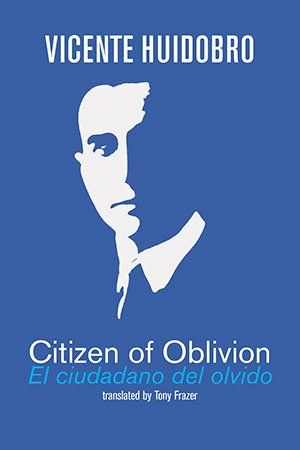
Nazifa Islam Forlorn Light — Virgina Woolf Found Poems

David Jaffin Corona Poems
Proving once again that he is perhaps the world's busiest poet, now that he is retirement, and especially locked down under Covid, David Jaffin offers here his first collection of short lyric poems for 2021.
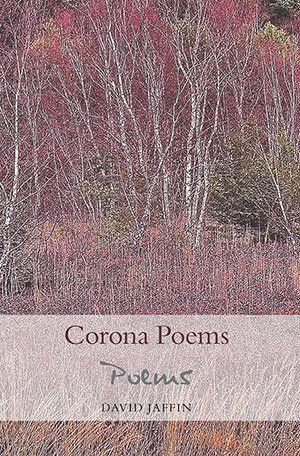
David Jaffin Spring Shadowings
Proving once again that he is perhaps the world's busiest poet, David Jaffin offers here his second collection of short lyric poems for 2021. There are many more to come.
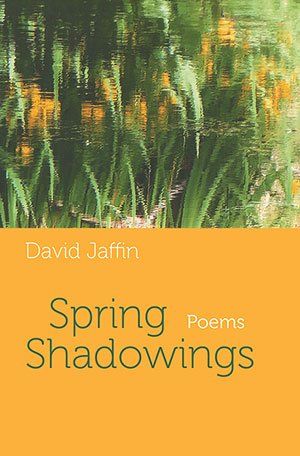
David Jaffin October — Cyprus Poems
The world's busiest poet strikes again. David Jaffin offers here his third collection of short lyric poems for 2022, this time revolving around the island of Cyprus which he visits every year.
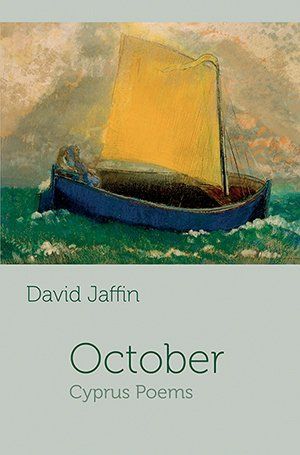
Norman Jope The Rest of the World
The Rest of the World is Norman Jope’s sixth full-length collection and his second from Shearsman, after Dreams of the Caucasus (2010). ʹGeo-delirumʹ – as the title of one of the pieces puts it – is perhaps the guiding theme of this collection. Following on from Dreams of the Caucasus, Jope’s prose poems occupy an interconnected – and increasingly digitalised – world in which traditional notions of the ʹpoetry of placeʹ continue to be at stake. Evidence gained from virtual explorations – Google Street View in particular – informs much of the work, enabling the author to ʹtravelʹ to locations as diverse as Sicily, Mississippi and Norway with no more than a series of mouse-clicks. By contrast, other pieces draw upon his first-hand experience of Hungary, Plymouth and elsewhere from his early years onwards as well as on his extensive reading and research. The world is envisaged as a treasure-trove of information that can be accessed, by all available means, in the pursuit of whatever knowledge a finite human life allows.
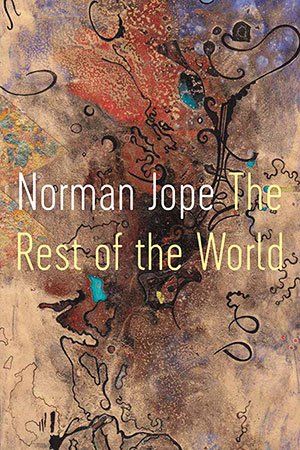
Aaron Kent Angels the Size of Houses
"Here, in this beautiful book, is the poetry of the possible. With words that are 'heaven sent and glitter prone', Aaron takes us on a journey that is as vital as it is extravagant, urging us into the fantastic, and turning our everyday scenes into glittering vistas. It is a collection to be dipped into again and again, one that leaps with language, and lends its readers fresh
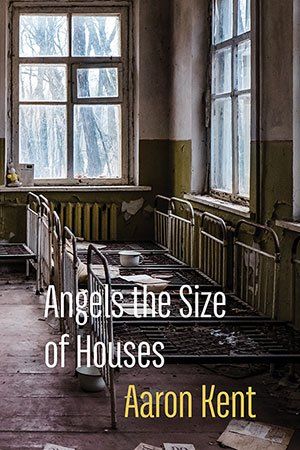
Peter Larkin Encroach to Resume
Published February 2021. Paperback, 104pp, 9 x 6ins, £12.95 / $20
ISBN 9781848617568 [Download a sample PDF from this book here .]
These poems entwine round such matters as how roots move as they grow or how feet plant themselves, why a forest admits lanes and lines but obstructs them into shelter, how a tree might relate to all it isn’t, what the hidden domains of nature can mean in and for trees, or the way in which trees cast the skies themselves into flight. The two last poems envisage a body language for trees, or how a dead upright tree remains a living nub of forest.
“Setting up an ecological orientation against habitual ways of reading and perceiving language, Larkin’s poems offer scientifically descriptive close investigations of trees whilst implying an allegorical dimension. They do so by means of a range of registers that only gain their scarce value in relation to one another.” —Katharina Maria Kalinowski
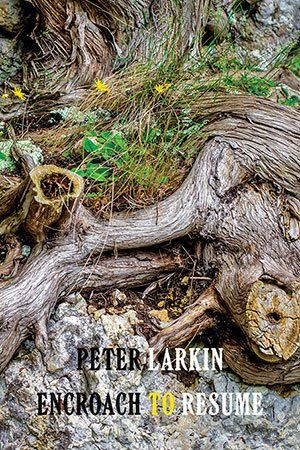
Tom Lowenstein The Structure of Days Out
Tom Lowenstein taught English in London and at Northwestern University between 1965 and 1974 . He first went to Tikigaq in 1973 and returned there to work with Asatchaq and other elders from 1975 to 1980. He studied Sanskrit at the University of Washington in the 1980s and now lives in London. He works part time online as an English tutor and continues to write poetry.
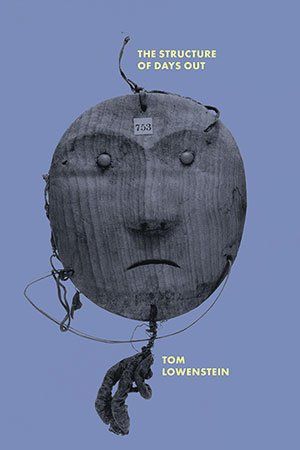
Jorge Manrique Stanzas on the Death of His Father
Published June 2021. Paperback, 102pp, 8.5 x 5.5ins, £10.95 / $18.
Coplas a la muerte de su padre by Jorge Manrique (c.1440–79) is one of the most celebrated poems in the Spanish language. Written shortly before the poet’s death, it is a dignified elegy that speaks not just of a personal loss, that of the poet’s father Rodrigo Manrique (d.1476), but of the evanescence of all things. Its popularity is aided by memorable lines, not least the two opening metaphors: man’s life is a river meandering unto the sea of death, and this world is the road to the next, the lasting dwelling place. The poem replicates these reflections in its wending form. Its forty stanzas each comprise four tercets; each tercet is made up of two longer octosyllabic verses combined with one four-syllable half-line known as pie quebrado. These regular broken lines, like beats of a heart, invest the poem with a resonant quality befitting the injunction at the opening of the poem to awaken one’s slumbering soul to the passage of time.
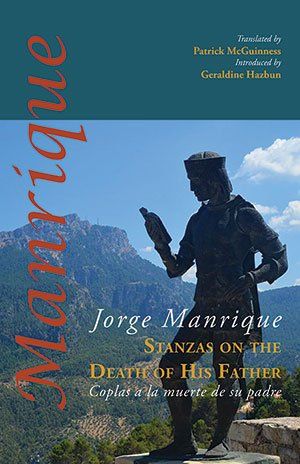
Deborah Meadows Neo-bedrooms
"Vivid with specifics, with instances of lived experience, this is a work firmly rooted in an earth that is itself unstable. Meadows explores that instability, explores our own complicity, and yet with a generosity that seeks to embrace rather than to blame, and through that embrace, to achieve a more exacting engagement with contemporary cultural and ecological tensions. Through her evocative, kaleidoscopic phrasing, we're witnesses to a meticulous yet rangy accounting that demonstrates how language can be used to create new modes of accountability." —Cole Swensen
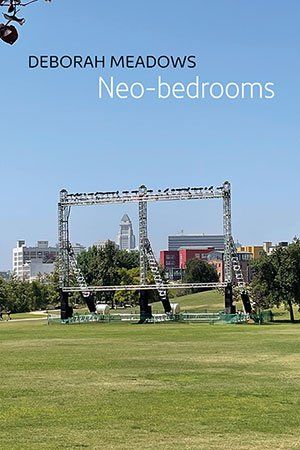
George Messo The Invention of Lars Ruth
With 14 monotypes by the author.
Published January 2021. Paperback, 78pp, 8.5 x 5.5ins, £10.95 / $18
ISBN 9781848617063 [Download a sample PDF from this book here .]
On a remote forest farm in northern Sweden, the static of Lars Ruth’s unsettled mind is fizzing. Voices. Sightings. Encounters, real and imagined, hint at a fractured and fragmentary life. Something is falling apart – something coming together.
The Invention of Lars Ruth is an intimate, visionary exploration of psychic disquiet. Its themes, of remembrance and aloneness, spiral around an evasive, haunting figure. But who is Lars? His voice is the echo to a volatile mind, aware of its disintegration, fearful of imminent collapse. Only by re-imagining his place in the natural world and the mysterious creatures in it, can Lars Ruth secure his newly awakening self.
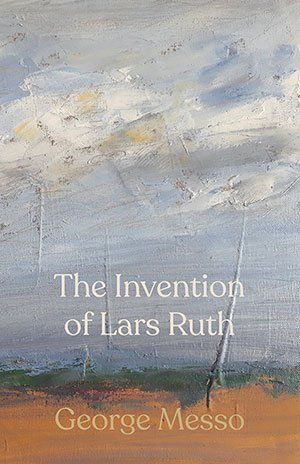
Jennifer Militello The Pact
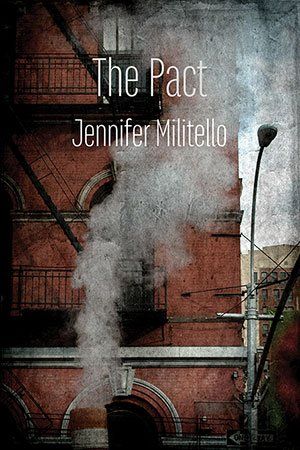
Eduardo Moga My Father
Translated from Spanish by Terence Dooley. Bilingual edition.
Published May 2021. Paperback, 116pp, 8.5 x 5.5ins, £12.95 / $20
ISBN 9781848617575 [Download a sample PDF from this book here .]
Poetry Book Society Translation Choice
Like a glazier reconstructing a mirror broken into a hundred shards, Eduardo Moga assembles a portrait of his father, thirty years after his death, from tiny sharp fragments of memory. This is no idealized patriarch but an ordinary man who has lived almost his whole life in the grey, grey hardscrabble years of the Franco dictatorship when it was ‘as if everybody’s feet smelt’. He is seen with a forensic clarity through now a child’s, now an adult’s eyes and across the gulf that education, relative prosperity and happier times inevitably create. He is sometimes absurd in his opinions and little vanities, sometimes off-putting in his personal habits, angry, lost, pitiable, but often kind and wanting to pass on his erratic wisdom. Most of all, and this is Moga’s great achievement, he is a real living person.
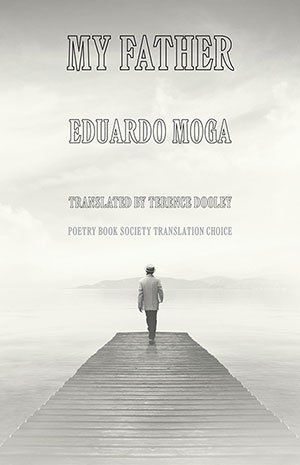
Richard Owens Song of the Constant Sea
Published August 2021. Chapbook, 36pp, 8.5 x 5.5ins, £7.50 / $10.95
ISBN 9781848617919 [Download a sample PDF from this book here .]
Song of the Constant Sea is a poem of moderate length which attends to the deeply entangled network of interrelations and genealogies that come together and variously cohere within a single consciousness of being. Starting from home or not home, the poem winds through a catalog of experiences and memories to suggest that home, more than a geographical location, is an imagined and essential space that is both constituted by and participant in building a poetic imaginary committed to liberatory balance, equity, and social justice.
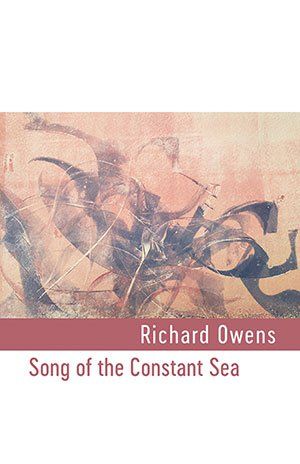
Alasdair Paterson My My My Life
—Stornoway Puffin
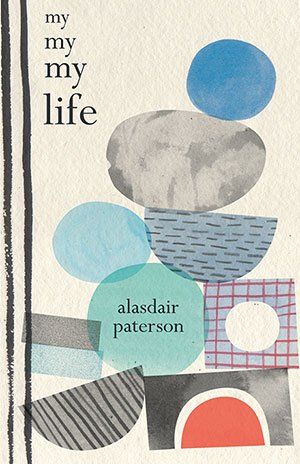
Tom Phillips (ed.) Peter Robinson: A Portrait of His Work
This volume contains essays by Ian Brinton, Peter Carpenter, Tony Crowley, Martin Dodsworth, Andrew Houwen, Miki Iwata, James Peake, Piers Pennington, Tom Phillips, Adam Piette, Elaine Randell, Anna Saroldi, Matthew Sperling, and Alison Stone, which covers all aspects of Peter Robinson's literary output.
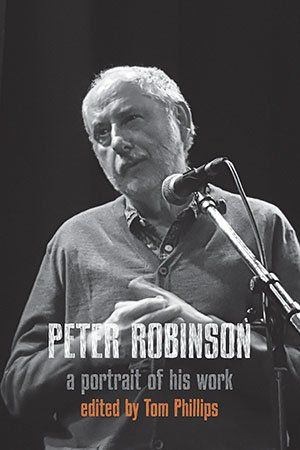
J.H. Prynne, John James, Andrew Crozier Three Books
This unusual compendium volume gives readers a chance to look in on this cardinal moment in radical English poetry, and see the connections at work. The sequences can be read in the various collected editions of the three poets, but the limited-edition originals are long out of print. Here the poems are presented together and afresh in the original context of their first grace and audacity.
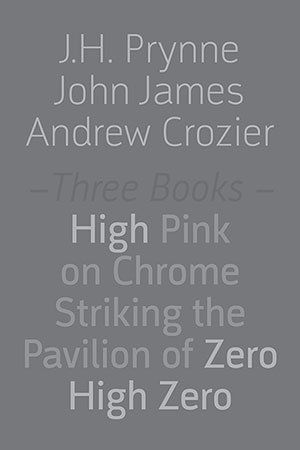
Peter Riley (ed.) Last Kind Words
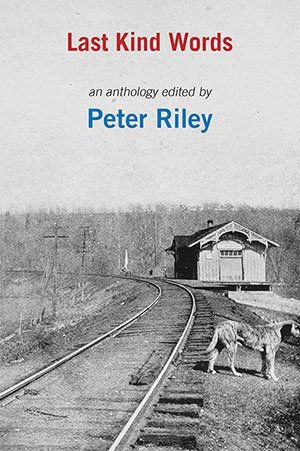
Peter Robinson The Personal Art — On Poetry and Poets
As Angela Leighton wrote in the Times Literary Supplement, Peter Robinson ‘has been a generous promoter of contemporary poetry for decades, and this collection of essays bears witness to his dedication and energy.’ What she had to say then of Twentieth Century Poetry: Selves and Situations (2005) could not be truer for The Personal Art, a new and comprehensive gathering of Robinson’s critical writings on Anglophone poets from Great Britain and Ireland, the United States, the Caribbean, Australia and New Zealand. Here are essays and reviews of collections by poets he has admired and followed over some forty-five years. Veronica Forrest-Thomson, Elizabeth Bishop, Douglas Oliver, John James, Peter Riley, Sinéad Morrissey, Peter Sirr, Derek Walcott and Bill Manhire are among the many writers whose work he addresses. To these have been added some memoirs on his childhood and youth in Liverpool, his becoming a reader, on the Cambridge Poetry Festival, the events around his diagnosis and operation for a benign brain tumour, and the importance of Roy Fisher as example and mentor. Robinson ‘writes with an unformulaic enthusiasm,’ Leighton observed, ‘moving easily from biographical, political and poetic contexts to the nitty gritty of close reading, while also striking an easy, readable tone.’ The Personal Art is an essential guide to the poetry that has shaped and fed the imagination of a distinctive and original poet.
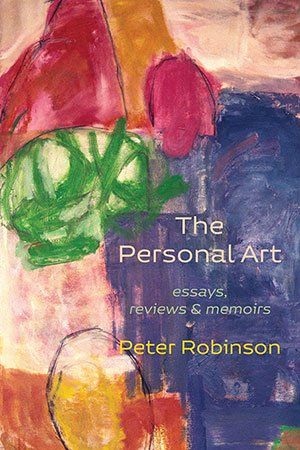
Anthony Rudolf Journey Around My Flat
Journey Around My Flat continues his practice – in the footsteps of Georges Perec and other French writers – of using objects to trigger memories. Rudolf takes the reader on a guided tour of each room in the North London flat, where he has lived for forty years, and includes a generous supply of photos. The book – running parallel to Silent Conversations – is a chronological successor to The Arithmetic of Memory, which ended with the author about to leave for university.
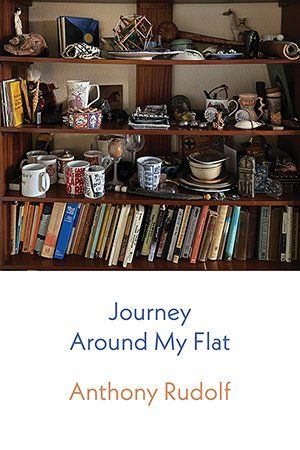
Alexandra Sashe Days of Earthly Exile
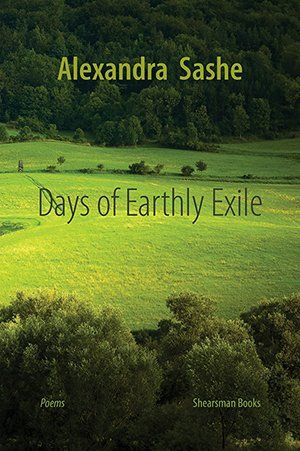
Nathan Shepherdson how to spear sleep
A late-life, late 1960s Celan straddles the perception and the hallucination that akin to Abraham he must choose between Poetry and his own son. The test is in the asking rather than what is being asked. It is not his belief but the readiness within that belief where the conflict exists. To adhere to the story, to countenance a different ending, to inject the necessary steps into his feet to ascend the idea and the mountain. In how to spear sleep Nathan Shepherdson has improvised a sequence of poems from a footnote in Celan scholarship. In sparse, anecdotal language, each poem seems extracted via a Beuysian mode of thought-sculpture. Collectively they drift like spores from a different hemisphere across the enormity of their subject.
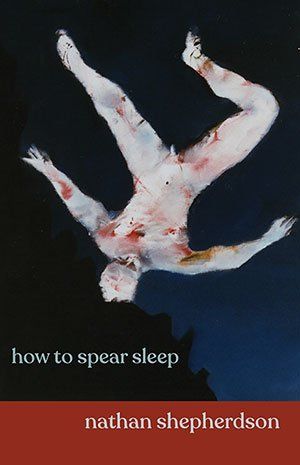
Robert Sheppard The English Strain
"Most of the poems [in this book] are variations or expanded translations of poems by Milton, Wyatt, Surrey, Charlotte Smith and Elizabeth Barrett Browning. In the case of Wyatt completely and Surrey (in ‘The Unfortunate Traveller’) and Smith (in ‘Petrarch of Petworth’), I have concentrated on their versions of Petrarch’s sonnets, sometimes the same ones. I believe I have signposted, either directly in titles, or through particular quotation in titles, the source poems; editions consulted are listed in the resources. All the poems are canonical, although Charlotte Smith (my fellow Sussex poet) is less known." — Robert Sheppard

Steve Spence How the Light Changes
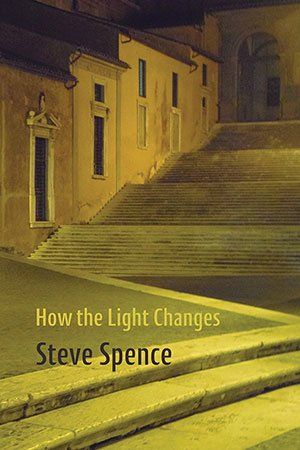
M Stasiak Enchant / Extinguish
Published August 2021. Chapbook, 32pp, 8.5 x 5.5ins, £7.50 / $10.95
ISBN 9781848617629 [Download a sample PDF from this book here .]
M. Stasiak grew up in Newfoundland, and now lives and works in London. Her work has been published in magazines including Magma, The Rialto, Brittle Star, Interpreter’s House, Envoi, Urthona, Iota, Poetry Salzburg Review, The North and Shearsman . This is her first chapbook.
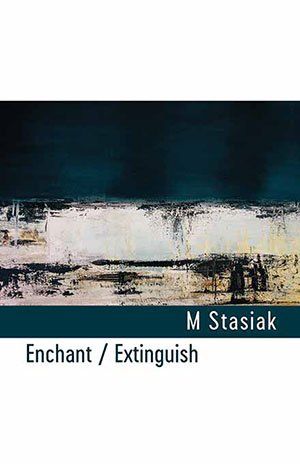
Agnieszka Studzinska Branches of a House
Branches of a House, Agnieszka Studzińska’s third collection, encounters the hauntings of dislocation and home. The odd, unfixed status of assumed reality of immediate and distant circumstances is acknowledged in obscured, absent houses and in the boundaries of dwelling. The poems are built from the gaps in remembering, and form a longing to find, in Gaston Bachelard’ s words, ‘our corner of the world.’ They demand yet distill in their archeology, the question of how we inhabit lived and broken spaces. Always on the threshold of loss, these poems move between the lyrical, personal, historical, and abstract, and meditate on the fractured utterance of thinking.
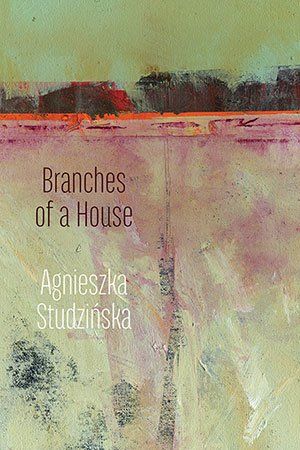
Hadassa Tal but first i call your name
"Hadassa Tal’s poetry is a manuscript of pain and beauty. 'How beautiful is all this beauty,' she writes, 'How will I surrender you to the ground.' But the power of these poems is just that: they do not surrender beauty to the ground. They give it to the wind, to the water, to the dance, they elevate it 'higher than the dome of thought', they sift through 'the death from the death within.' These broken poems create the 'elusive miracle' that allows us to grasp what can not be grasped, to know what is impossible to know. Thus, throughout the pages of this book, they shift across states of matter and registers of language and voice, only to hold one tiny girl, 'innocent of words,' and to release her from the innumerable eyes that are reflected in the noting." —Dana Amir.
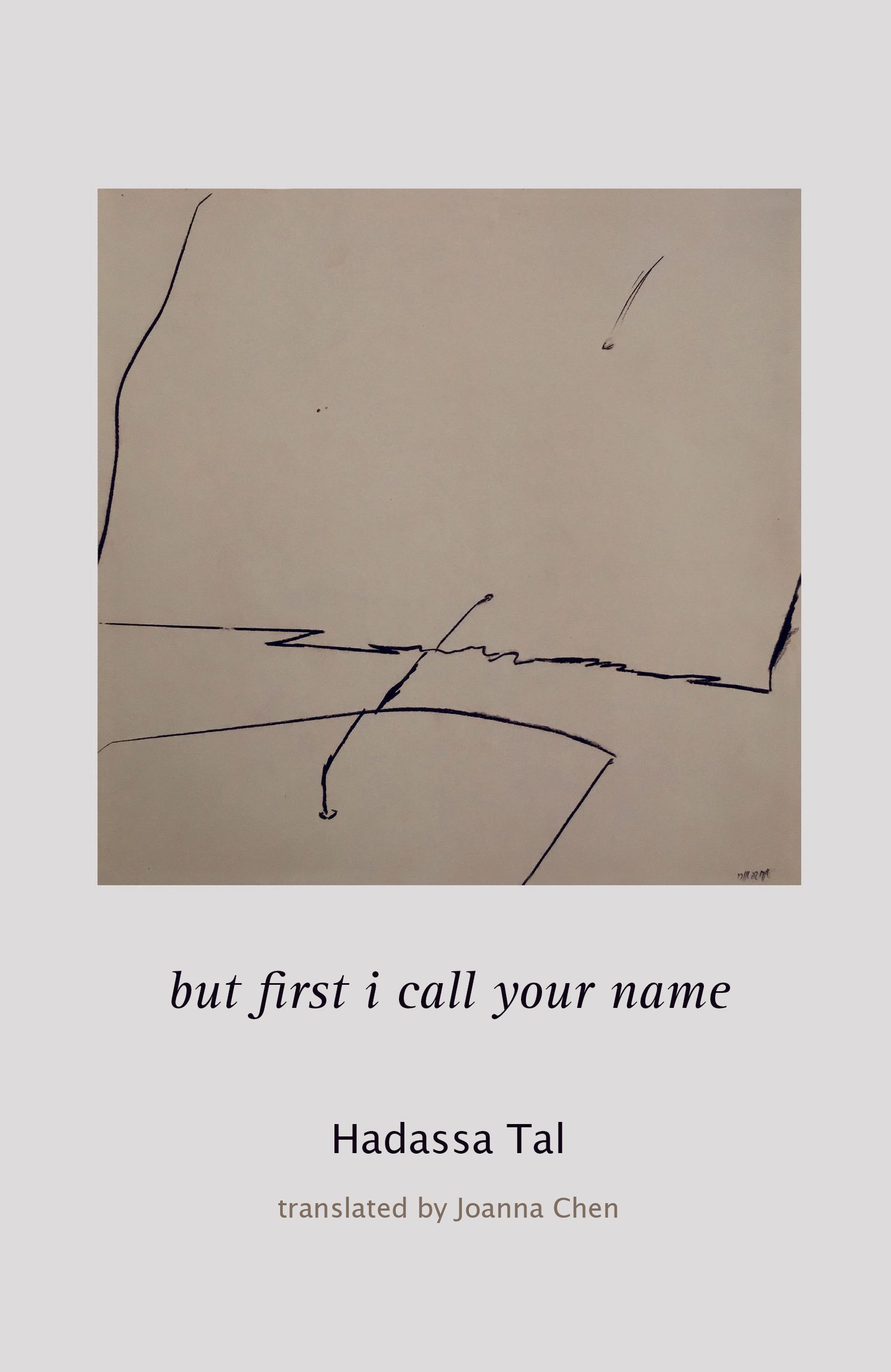
Andrew Taylor Not There — Here
Continuing the themes of travel explored in his previous Shearsman collections, Radio Mast Horizon (2013) and March (2017), Andrew Taylor takes the reader from England into pre & post-Brexit Europe, negotiating the arrival of the nightingale, European breakfasts, fast trains into Paris, and the ‘beautiful drift’ of weaving grasses. The reader is treated to the minimalist notion of moments in time alongside the traversing of travelators in Montparnasse and the intricacies of the 280-character form.
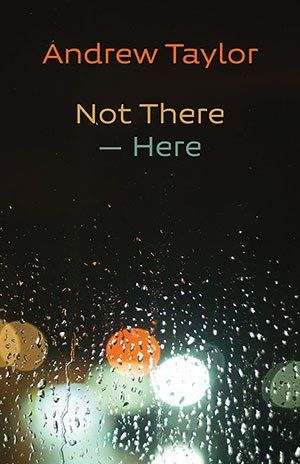
Marina Tsvetaeva Poem of the End: 6 Narrative Poems
This bilingual collection contains six of Tsvetaeva’s acclaimed narrative poems. She always regarded the narrative poem as her true challenge, and she created powerful and intensely original works in this genre. They can be seen as markers of various stages in her poetic development, ranging from the early, folk-accented ‘On a Red Steed’ to the lyrical-confessional ‘Poem of the Mountain’ and ‘Poem of the End’ to the more metaphysical later poems, ‘An Attempt at a Room’, a beautiful requiem for Rilke, ‘New Year’s Greetings’, and ‘Poem of the Air’, a stirring celebration of Lindbergh’s transatlantic flight and the quest for the soul’s freedom.
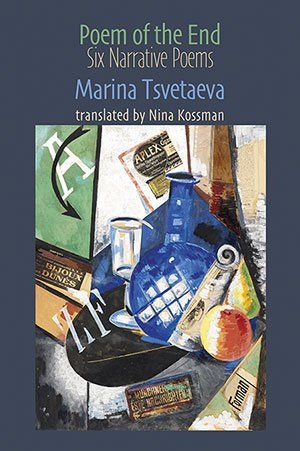
Virgil (translated by David Hadbawnik) Aeneid, Books I-VI
This is the hardcover version of a book originally published in paperback in 2015 and still available.
See below for Vol 2.
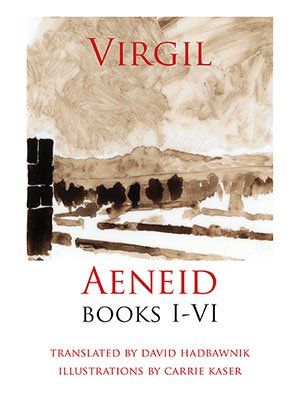
Virgil (translated by David Hadbawnik) Aeneid, Books VII-XII
This is the hardcover version of a book also available in paperback with grayscale images. See below.
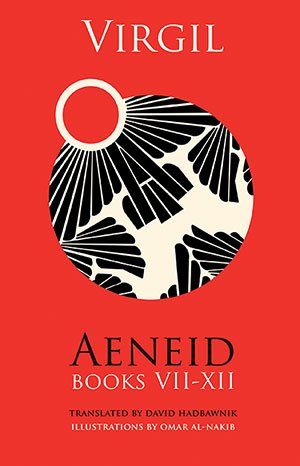
Virgil (translated by David Hadbawnik) Aeneid, Books VII-XII
Published September 2021. Paperback, 368pp, 9.21 x 6.14ins. English only.
ISBN 9781848617803 [Download a sample PDF here .]
With over 60
grayscale
illustrations by Omar Al-Nakib.
This is the paperback
version of a book also available in hardcover and in full-colour.
WITHDRAWN IN 2023 UPON THE RELEASE OF THE ONE-VOLUME EDITION OF THE ENTIRE POEM.
The first six books of David Hadbawnik’s astonishing modern translation of the Aeneid appeared from Shearsman Books in 2015. He now brings the whole project to a spectacular conclusion in a volume accompanied by Omar Al-Nakib’s dramatic abstract illustrations.
“Few narrative poems have possessed the Western imagination like Virgil’s twelve-book epic written during Augustus’s triumphant consolidation of the Roman Empire. […] This new volume goes a long way toward moving the narrative into the hands of contemporary readers, drawing out a playful understanding of the ancient story while exhibiting modern preferences for poetic interaction and inquiry into the history and terms of poetic form and translation. Hadbawnik shows the fun to be had in language’s etymological resonance, and he delights in scenes of dramatic fulfillment and failure. His translation distills the essence of the narrative by directing a reader’s perception of the tale." —from Dale Martin Smith's Introduction.
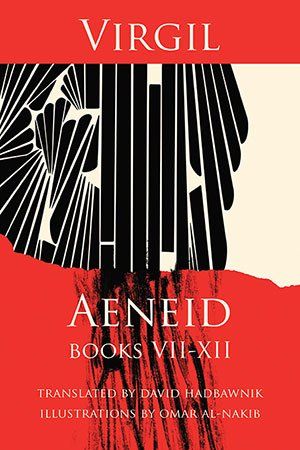
Mark Weiss A Suite of Dances
"Pulsing with wit, bravado, vulgarity, pathos, whimsy, and replete with that rarest of pleasures in contemporary poetry: the pulse and surge of song, these poems ripple with a music that moves freely through the range of English lyric. The bass note of melancholy anchors them in a tradition of reflective loss and revival that is, finally, reaffirming, since, as Williams put it, 'we know nothing and can know nothing/but/the dance'." —Patrick Pritchett
